
Moody's opinion threatens to derail off-balance-sheet data centre deals
Moody’s has dealt a blow to the growing trend for hyperscalers to use leasing deals to shift hundreds of billions of dollars of data centre liabilities off balance sheet, with the ratings agency warning that companies using that financing route risk a “material” deterioration in their credit profiles.
Side quest fails: bondholders press X on EA's tender offer
The biggest leveraged buyout ever could start out with a blemish after most bondholders of Electronic Arts declined the company’s offer to buy back their notes at a discount to par.

Banks premarket Qualtrics debt amid software storm
A JP Morgan-led bank group has begun premarketing more than US$5bn of debt to back software provider Qualtrics’ acquisition of healthcare analytics company Press Ganey Forsta, testing investors' appetite for technology risk when confidence in the sector is under pressure.

Prasad Gollakota
It is unbecoming to say “I told you so”, but when it comes to Meta Platforms’ US$27.3bn project bond to fund its Hyperion data centre via private credit shop Blue Owl Capital (and SPV Beignet Investor) the temptation is strong. I wrote in late 2025 that Meta’s decision not to consolidate the debt on its balance sheet sits uneasily with the economic risk that investors have assumed they are taking when they bought the deal in October. And now Meta’s auditor, EY, clearly feels this same tension.
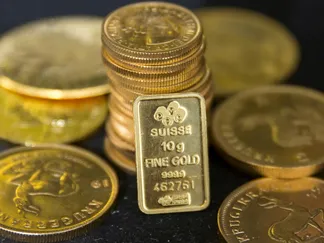
Banks are reaping the benefits of a trading boom in precious metals, as heightened volatility and surging client volumes deliver a bumper payday for commodities traders.
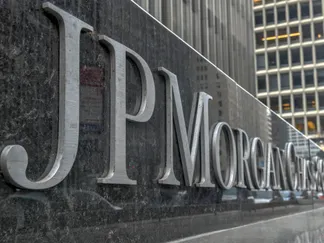
JP Morgan expects the investment banking and trading boom to continue in the current quarter.

Canadian banks started the year off right – breaking revenue records driven by investment banking and trading gains, and committing to support their country’s defence buildup in the face of a global trend towards increased security spending.
Demand for newly issued bonds has never been as strong, according to a new analysis from Barclays, as a broader set of investors piling into corporate credit in recent years has made it easier than ever for companies to borrow money in public debt markets.
Robert Koller has re-emerged six months after the demise of his last sprawling fintech business to set out the vision for his new AI-driven platform fundingDesk, or fDesk. He has slashed his NowCM brand product offering, alongside many overheads and has used AI to create a product that streamlines the manual steps and cut issuers' costs associated with debt issuance.
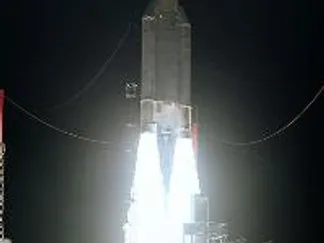
French-backed satellite operator Eutelsat tapped the high-yield bond market on Wednesday with a €1.5bn dual-tranche issue, the latest in a series of transactions that underline the company's growing strategic importance in Europe's push to strengthen its defence capacity.
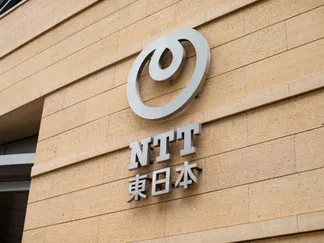
Japanese telecoms company NTT was in the euro, sterling and US dollar Formosa markets on Wednesday raising US$3.67bn-equivalent as part of its efforts to diversify its funding sources at attractive pricing levels.
Electricite de France raised questions over whether it will draw down on a £1.5bn private credit line available to the company this year, after it turned to the public euro market for a trade earmarked with the same use of proceeds.
Romania brought its long-awaited first international transaction of the year to the market on Wednesday, with a €4.7bn-equivalent dual-currency offering as it took advantage of a boost in sentiment following news of the government’s fiscal consolidation plans.

Neither a snowstorm nor a fire cast a pall on the annual structured finance conference in Las Vegas where more than 11,000 industry participants flocked this past week.
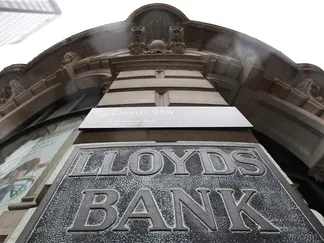
The reception of Lloyds Bank’s latest Dutch RBMS underscored that there is sustained investor appetite for Dutch collateral and the broader positive tone surrounding European securitisations.
The Financial Conduct Authority’s plan to ease red tape and simplify the UK securitisation regime has been welcomed by market participants, who see the regulator's moves as helping kickstart a revival in an industry that has yet to return to pre-financial crisis highs.
Refinancings and resets that dominated the European CLO primary market at the start of the year are finally giving way to new issue CLOs. The dynamic has flipped, as CLO spreads push wider in the face of AI-fuelled jitters in the software industry, making resets and refis less economically appealing for managers.
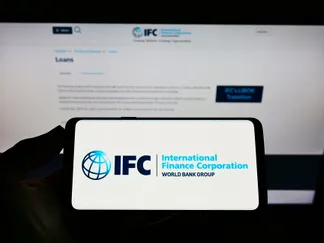
The International Finance Corp has signed a US$6bn insurance-backed facility that marks the World Bank Group member’s largest single mobilisation of private capital.

Legal & General is committing as much as US$1bn to credit-enhanced emerging markets development investing that will include both sovereign debt-for-development swaps and new structures.
Green bonds are off to a strong start in 2026 with US$84.4bn issued globally this year, showing a healthy 12% increase on the US$75.7bn issued at the same time in 2025, according to LSEG data.

Three companies have recently reported missing 2025 targets on sustainability-linked bonds in what is expected to be a "watershed year" for the instrument that will provide insight into the energy transition, according to research by the Anthropocene Fixed Income Institute.

An emerging markets transition debt strategy launched two years ago with heavyweight institutional support is approaching its first US$1bn in assets under management as asset owners, even in the seemingly ESG-hostile US, increase exposure to the EM transition theme.
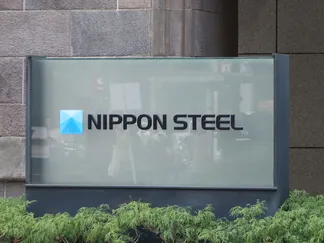
Nippon Steel has raised ¥600bn (US$3.84bn) from Japan's largest convertible bond to repay part of the bridge loans incurred to finance last year's acquisition of US Steel.
French construction company Vinci has capitalised on a strong run in Groupe ADP shares by issuing a €500m five-year exchangeable bond into the Paris airport operator in which it has an 8% stake.
Bangkok-listed Minor International is working with Citigroup and DBS on a Singapore Exchange real estate investment trust IPO of up to S$700m (US$553m) in the second half of this year, people with knowledge of the transaction said.

Medtronic is moving ahead with plans to carve out its MiniMed Group diabetes unit by launching a Nasdaq IPO on Tuesday that would value the fast-growing subsidiary at up to US$7.86bn.

India Inc’s acquisition spree last year that took outbound M&A dealflow to a 15-year high is expected to provide further financing opportunities, with mid and small-cap companies jumping on the bandwagon.
A JP Morgan-led bank group has begun premarketing more than US$5bn of debt to back software provider Qualtrics’ acquisition of healthcare analytics company Press Ganey Forsta, testing investors' appetite for technology risk when confidence in the sector is under pressure.

The biggest leveraged buyout ever could start out with a blemish after most bondholders of Electronic Arts declined the company’s offer to buy back their notes at a discount to par.
Blue Owl Capital's business development companies, already under pressure from market-wide concerns about weaknesses in private credit, are now facing a new challenge from activist investors.
Sewing’s Eleven
In a heart-warming tale, Christian Sewing and 10 other European bank CEOs have put their competitive differences aside to pen a joint opinion piece for German newspaper Die Welt calling for the European Council to include the banking sector in its “One Europe, One Market” initiative next month.
Continue Reading

Read the latest stories from the magazine IFR 2622 - 28 Feb 2026 - 6 Mar 2026
28 Feb 2026 - 6 Mar 2026


It is unbecoming to say “I told you so”, but when it comes to Meta Platforms’ US$27.3bn project bond to fund its Hyperion data centre via private credit shop Blue Owl Capital (and SPV Beignet Investor) the temptation is strong. I wrote in late 2025 that Meta’s decision not to consolidate the debt on its balance sheet sits uneasily with the economic risk that investors have assumed they are taking when they bought the deal in October. And now Meta’s auditor, EY, clearly feels this same tension.

Full-year earnings from European banks – Barclays, BNP Paribas, Deutsche Bank, Societe Generale and UBS – showed them broadly holding market share in the markets’ business, but struggling to capitalise on the upswing in investment banking.

The repo market is the heartbeat of bond markets. Like a real heartbeat, when all is well, there is nothing more boring. But when things go wrong … watch out.

The AI boom has been backed by investor enthusiasm – and their money – on an unprecedented scale. Investment bankers have high hopes of a huge year for deals. But just like the broader economy, will this be a K-shaped market for tech deals?

How stable is a stablecoin? That is a question that S&P attempts to answer via its Global Ratings’ Stablecoin Stability Assessment, a product designed to quantify a stablecoin’s ability to maintain its peg to a fiat currency. It produces a score from 1, very strong, to 5, weak.


















